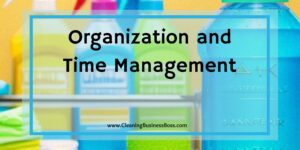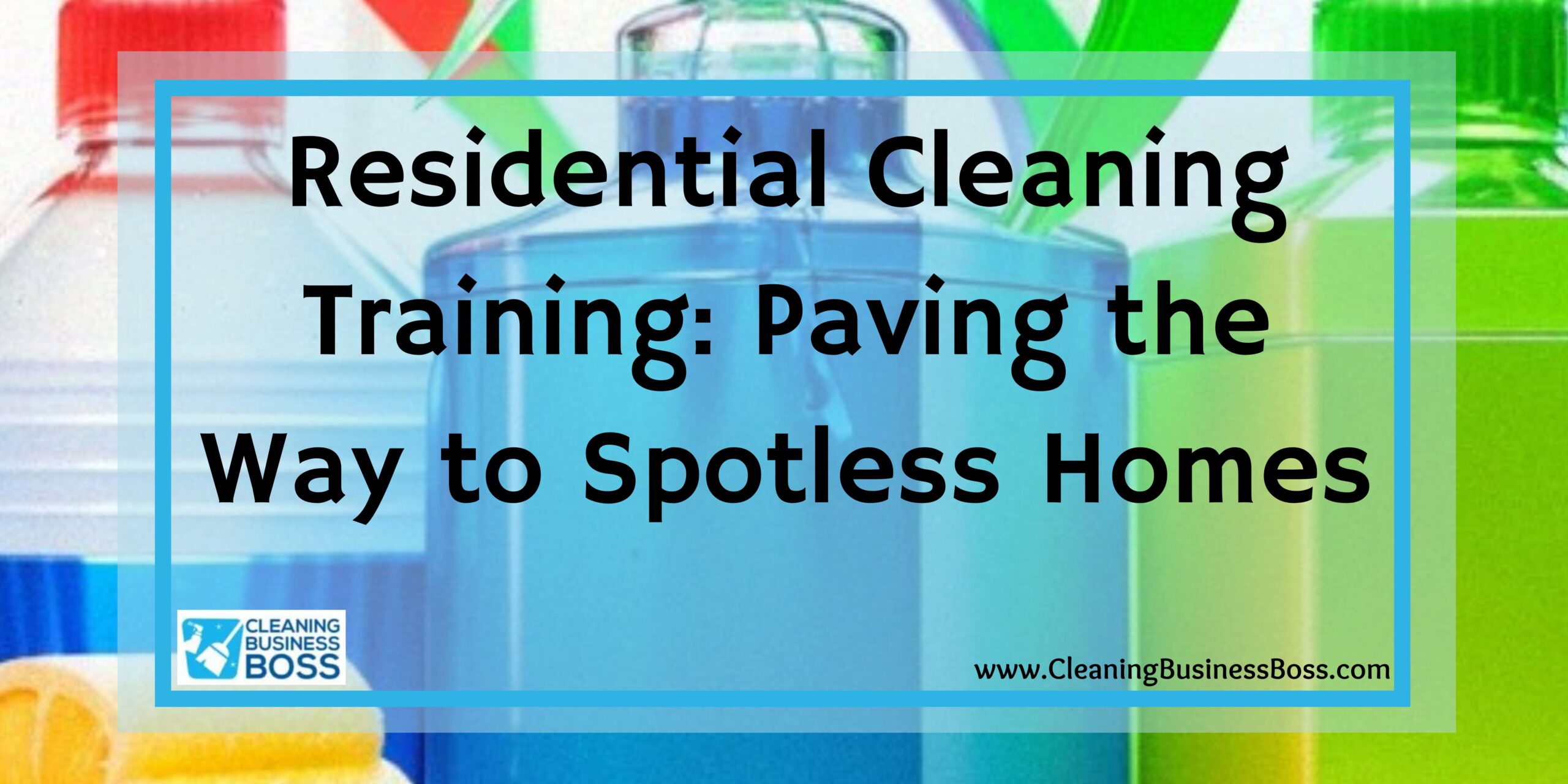Residential cleaning is an essential service that ensures the cleanliness and hygiene of homes. As a professional residential cleaner, it is crucial to acquire the necessary training to provide top-notch services to clients.
Residential cleaning training covers essential techniques, tools, and customer service skills. From surface-specific cleaning to time management, it equips professionals with the knowledge to deliver top-quality services. Effective communication and continuous learning are also emphasized to provide a seamless client experience.
Understanding Cleaning Techniques
This section focuses on the fundamental approaches to ensure optimal cleanliness.
Surface-Specific Cleaning
Different surfaces require specific cleaning methods. When it comes to floors, understanding the material—whether it’s hardwood, tile, laminate, or carpet—is essential. Techniques such as sweeping, mopping, vacuuming, and spot cleaning are explored, ensuring the preservation and cleanliness of each surface. Countertops, whether made of granite, quartz, or laminate, have unique care requirements.
Proper cleaning agents and techniques are covered to prevent damage or dullness. Furniture and fixtures, such as upholstery, wooden surfaces, and delicate materials like glass or stainless steel, demand specialized approaches. From dusting and polishing to stain removal, training provides comprehensive guidance on maintaining the condition and appearance of these surfaces. Ultimately, by mastering surface-specific cleaning techniques, professionals can deliver exceptional results tailored to each area of a home.
Sanitization and Disinfection
Maintaining a healthy living environment requires proper sanitization and disinfection practices. Residential cleaning training delves into the correct procedures and recommended products to effectively eliminate germs and bacteria. Topics include understanding the difference between sanitization and disinfection, selecting appropriate disinfectants for different surfaces, and following guidelines for contact time and proper application.
Training also emphasizes high-touch areas, such as doorknobs, light switches, and bathroom fixtures, where germs tend to accumulate. Understanding the importance of using EPA-approved disinfectants and implementing thorough cleaning techniques ensures the safety and well-being of residents. By following these guidelines, cleaning professionals can create a hygienic environment that instills confidence and promotes good health.
Time Management
Efficient cleaning relies on effective time management strategies. Training programs address the importance of prioritizing tasks based on urgency and client preferences. Techniques for developing a cleaning routine are explored, allowing professionals to streamline their workflow and ensure all necessary tasks are completed within the allocated time. Time-saving tips, such as grouping similar tasks together and utilizing efficient cleaning tools and equipment, are shared.
Training emphasizes the significance of maintaining a balance between speed and thoroughness, ensuring that no area is overlooked while maximizing productivity. By mastering time management in residential cleaning, professionals can deliver quality results in a timely manner, enhancing customer satisfaction and optimizing their own efficiency.
Check out this article to know what are the suppliers that you must have in your cleaning business.
Essential Tools and Equipment

Equipping yourself with the right tools and equipment is vital for professional residential cleaning. This section explores the must-have tools and their appropriate usage:
Cleaning Supplies
Residential cleaning training delves into the wide range of essential cleaning supplies needed for different surfaces and areas. It covers the importance of microfiber cloths, which are effective in capturing dust and debris without scratching surfaces. Scrub brushes and scrubbing pads are explored for tackling tough stains and grime. Mops, both traditional and microfiber, are discussed along with their appropriate usage for different floor types. Vacuum cleaners, including upright, canister, and handheld models, are highlighted for efficient and thorough cleaning. Understanding the right tools for each task ensures optimal results and prevents damage to surfaces.
Cleaning Agents
Residential cleaning training provides insights into the diverse types of cleaning agents available and their specific purposes. It outlines the characteristics of various cleaning agents such as all-purpose cleaners, disinfectants, degreasers, and specialized products like glass cleaners or stainless steel polishes. Training guides professionals in selecting the most suitable cleaning agents based on the surface or material being cleaned.
Understanding the properties and limitations of each agent helps prevent damage and ensures effective cleaning results. Training emphasizes the importance of reading product labels, following dilution instructions, and considering environmentally friendly or green cleaning alternatives.
Safety Equipment
Safety is a top priority in residential cleaning training. It emphasizes the importance of using personal protective equipment (PPE) to minimize risks and protect oneself during cleaning tasks. Training covers the different types of safety gear required for various cleaning scenarios, such as gloves, goggles, masks, and aprons. It educates professionals on the significance of using PPE to prevent exposure to chemicals, allergens, and physical hazards.
Proper training also includes guidelines for handling and storing cleaning agents safely. By prioritizing safety equipment and practices, cleaning professionals can create a secure working environment and ensure their well-being while delivering exceptional cleaning services.
Effective Communication and Customer Service
Providing exceptional customer service is a key aspect of residential cleaning. This section focuses on developing effective communication skills and managing client expectations:
Active Listening
In residential cleaning training, the importance of active listening is emphasized. Understanding client needs and preferences is crucial for providing satisfactory cleaning services. Training provides tips on attentive listening, such as maintaining eye contact, asking clarifying questions, and paraphrasing to ensure accurate comprehension. It also emphasizes the significance of maintaining open communication with clients, encouraging them to voice their concerns or specific cleaning requirements. By actively listening and engaging with clients, cleaning professionals can tailor their services to meet individual expectations, resulting in higher client satisfaction and loyalty.
Clear Instructions and Expectations
Setting clear instructions and expectations with clients is essential for establishing a smooth working relationship. Residential cleaning training offers guidance on discussing the scope of work, pricing, and any specific client requests. It emphasizes the importance of outlining the cleaning tasks to be performed, the frequency of cleaning, and any additional services or areas that may require attention. Effective communication during the initial consultation or walkthrough ensures that both parties have a clear understanding of what is expected. This helps prevent misunderstandings or unmet expectations, leading to a more transparent and professional working relationship.
Conflict Resolution
While rare, conflicts may occasionally arise during residential cleaning services. Training programs explore techniques for resolving conflicts professionally and maintaining a positive client experience. Professionals are taught effective communication skills to address any concerns or issues that may arise during the cleaning process. This includes active listening, empathy, and problem-solving approaches.
Training also emphasizes the importance of remaining calm, respectful, and proactive when addressing conflicts, aiming for a win-win resolution. By handling conflicts in a professional manner, cleaning professionals can preserve client relationships and reputation, ensuring continued satisfaction and trust.
Organization and Time Management

A well-organized cleaning process enhances efficiency and client satisfaction. This section covers essential tips for effective organization and time management:
Inventory Management
Residential cleaning training recognizes the importance of efficient inventory management. Keeping track of cleaning supplies and equipment ensures uninterrupted operations and avoids last-minute shortages. Training programs discuss inventory management techniques, such as conducting regular stock checks, organizing supplies, and implementing systems for tracking usage and reordering.
Professionals are introduced to various tools and software that can streamline inventory management, such as barcode scanners, inventory management apps, or spreadsheets. By effectively managing inventory, cleaning professionals can optimize productivity, reduce costs, and maintain a well-stocked supply of essential cleaning items.
Scheduling and Planning
Residential cleaning training emphasizes the significance of effective scheduling and planning. Professionals learn how to create cleaning schedules that allocate sufficient time for each task, ensuring that all cleaning obligations are met within the designated timeframe. Training programs explore techniques for prioritizing tasks based on urgency, client requirements, and the scope of work.
Professionals are encouraged to consider factors such as travel time between locations, specific client preferences, and any additional services or special requests. By mastering scheduling and planning, cleaning professionals can maintain a structured and organized approach to their work, leading to improved efficiency, client satisfaction, and the ability to accommodate new appointments effectively.
Know the role of insurance in your cleaning business by visiting our article here.
Continuous Learning and Improvement

Residential cleaning is a dynamic field that evolves over time. This section emphasizes the importance of continuous learning and improvement:
Industry Updates
In the ever-evolving field of residential cleaning, staying informed about the latest techniques, products, and trends is essential for professional growth. Residential cleaning training emphasizes the importance of regularly updating knowledge and skills. It suggests resources such as industry publications, online forums, and professional associations that provide access to valuable industry updates.
Training programs also encourage professionals to engage with online communities, attend industry events, and participate in webinars or workshops to stay up-to-date with the latest advancements. By staying informed, cleaning professionals can implement innovative cleaning techniques, adopt new tools or equipment, and provide clients with the most effective and efficient cleaning solutions.
Seeking Feedback
Feedback from clients plays a vital role in the continuous improvement of residential cleaning services. Training programs highlight the importance of actively seeking feedback from clients and utilizing it to enhance service quality. Professionals are trained on effective feedback collection methods, such as post-service surveys, follow-up calls, or comment cards.
They learn to create a comfortable environment where clients feel encouraged to share their opinions and suggestions. By listening to client feedback, cleaning professionals can identify areas for improvement, address any concerns promptly, and adapt their cleaning approaches to meet specific client needs. This commitment to feedback-driven improvement fosters stronger client relationships, enhances service quality, and sets the foundation for long-term success in the residential cleaning industry.
Summary
Mastering the art of residential cleaning requires a combination of technical skills, effective communication, and a commitment to continuous improvement. This training guide has provided insights into various aspects of residential cleaning, including cleaning techniques, essential tools, customer service, organization, and the importance of ongoing learning.
By incorporating these principles into your training, you will be well-equipped to deliver outstanding residential cleaning services and exceed client expectations. Embrace the journey of professional development, and become a sought-after residential cleaner in your community!
Frequently Asked Questions
Can residential cleaning training be done online?
Yes, many training programs offer online options, allowing participants to learn at their own pace from the comfort of their homes. Online training can include video tutorials, interactive modules, and assessments.
Will residential cleaning training teach me about different cleaning products?
Yes, training programs often cover various cleaning products and their appropriate usage. You will learn about different cleaning agents, their properties, and which products are best suited for specific cleaning tasks.
Can residential cleaning training help me start my own cleaning business?
Yes, residential cleaning training can provide you with the knowledge and skills needed to start your own cleaning business. It covers aspects like business planning, marketing, and client acquisition strategies.
To learn more on how to start your own cleaning business, check out my startup documents here.
Please note that the contents of this blog are for informational and entertainment purposes only and should not be construed as legal advice. Any action taken based on the information provided in this blog is solely at your own risk. Additionally, all images used in this blog are generated under the CC0 license of Creative Commons, which means they are free to use for any purpose without attribution.

About the author. Entrepreneur and Cleaning Business Fan.
Hi! I am Shawn and I am a happy individual who happens to be an entrepreneur. I have owned several types of businesses in my life from a coffee shop to an import and export business to an online review business plus a few more and now I create online cleaning business resources for those interested in starting new ventures. It’s demanding work but I love it. I do it for those passionate about their business and their goals. That’s why when I meet a cleaning business owner, I see myself. I know how hard the struggle is to retain clients, find good employees and keep the business growing all while trying to stay competitive.
That’s why I created Cleaning Business Boss: I want to help cleaning business owners like you build a thriving business that brings you endless joy and supports your ideal lifestyle.

